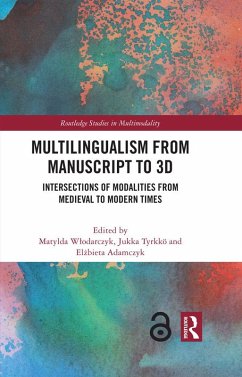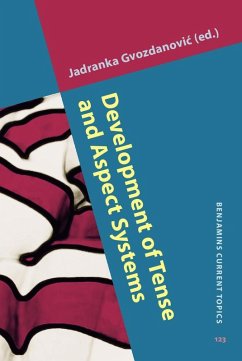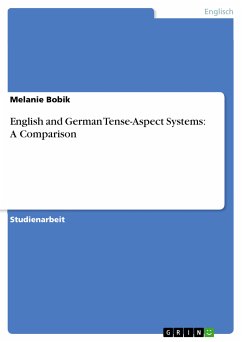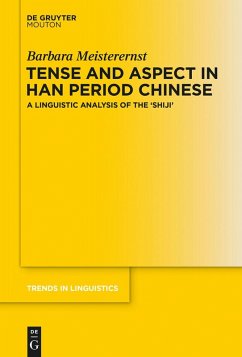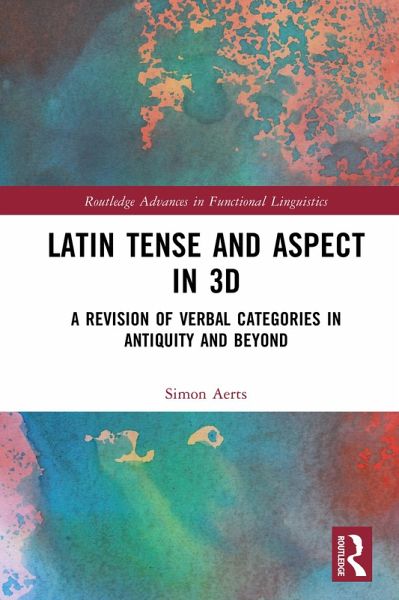
Latin Tense and Aspect in 3D (eBook, ePUB)
A Revision of Verbal Categories in Antiquity and Beyond
Versandkostenfrei!
Sofort per Download lieferbar
39,95 €
inkl. MwSt.
Weitere Ausgaben:

PAYBACK Punkte
20 °P sammeln!
This book applies an SFL-inspired, multi-dimensional approach to Latin linguistics, offering fresh insights into Latin narrative tenses while addressing challenges posed by its closed-corpus nature. Bridging Classics and Linguistics, it categorizes the functional potential of the verbal categories "tense" and "aspect" and reshapes existing labels through a quantitative analysis of select historiographical narratives. Aerts elucidates the communicative subtleties of tense and aspect in Latin and highlights their relevance to modern linguistic methodologies and cross-linguistic investigations.Co...
This book applies an SFL-inspired, multi-dimensional approach to Latin linguistics, offering fresh insights into Latin narrative tenses while addressing challenges posed by its closed-corpus nature. Bridging Classics and Linguistics, it categorizes the functional potential of the verbal categories "tense" and "aspect" and reshapes existing labels through a quantitative analysis of select historiographical narratives. Aerts elucidates the communicative subtleties of tense and aspect in Latin and highlights their relevance to modern linguistic methodologies and cross-linguistic investigations.
Contributing to functional linguistic theory, the volume explores the semantic boundaries of tense and aspect in human languages, uncovering previously unrecognized uses in Latin and addressing obstacles in historical language analysis. It showcases how modern tools enhance reproducibility and deepen our understanding of grammatical systems, with implications for the study of Latin, Romance languages, and beyond. This book will appeal to scholars in linguistics, classical philology, and historical linguistics.
Contributing to functional linguistic theory, the volume explores the semantic boundaries of tense and aspect in human languages, uncovering previously unrecognized uses in Latin and addressing obstacles in historical language analysis. It showcases how modern tools enhance reproducibility and deepen our understanding of grammatical systems, with implications for the study of Latin, Romance languages, and beyond. This book will appeal to scholars in linguistics, classical philology, and historical linguistics.
Dieser Download kann aus rechtlichen Gründen nur mit Rechnungsadresse in A, B, BG, CY, CZ, D, DK, EW, E, FIN, F, GR, HR, H, IRL, I, LT, L, LR, M, NL, PL, P, R, S, SLO, SK ausgeliefert werden.




